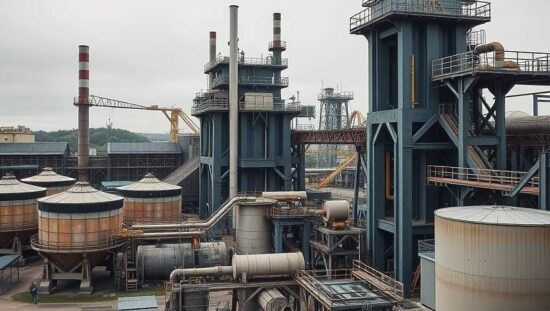The German Social Democratic Party (SPD) parliamentary group is pushing for a significant interventionist approach to safeguard the nation’s beleaguered steel industry, reportedly considering state ownership as a last resort. An internal policy paper, slated for approval this week and revealed by “Stern” magazine, outlines a range of measures intended to protect domestic steel producers from international competition and ensure the industry’s transition to climate-neutral production.
The proposed document signals a shift towards greater state involvement, acknowledging the precarious state of the sector, which faces challenges including surging energy costs, global overcapacity and the pressure of cheaper imports. While emphasizing that active industrial policy remains the primary solution, the SPD is advocating for the option of state intervention in steel production “in justified individual exceptional cases” a move that has already drawn criticism from some quarters as a potential distortion of the market.
The party’s ambitions extend beyond mere ownership, encompassing a broader strategy to bolster the industry’s competitiveness. Key proposals include stricter “Buy European” clauses in national and European procurement laws, designed to level the playing field and prioritize domestic production. A complex mix of policy measures is also being championed to stabilize energy prices, with the SPD proposing to maintain subsidies for energy-intensive industries beyond 2026.
Furthermore, the demands are escalating. The party is now urgently calling for the implementation of a “reliable and competitive” industrial electricity price – a controversial concept that would tie electricity rates to commitments regarding local job preservation. Critics argue that such stringent conditions risk stifling investment and innovation.
The impending “Steel Summit” at the Chancellery is expected to be contentious, with differing opinions on the appropriate level of state involvement likely to be discussed. While the SPD’s proposals reflect growing anxieties about the long-term viability of a vital strategic industry, the potential ramifications of such extensive intervention on market dynamics and fair competition require careful and critical assessment. The extent to which the coalition government and indeed the European Union, will support these ambitious plans remains to be seen.





